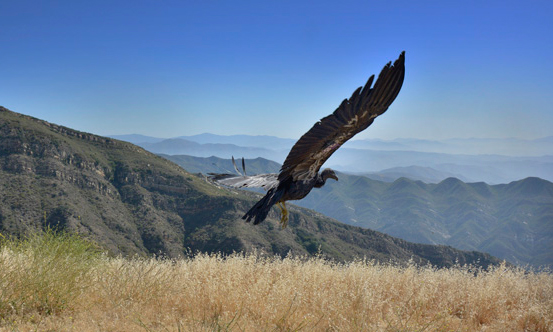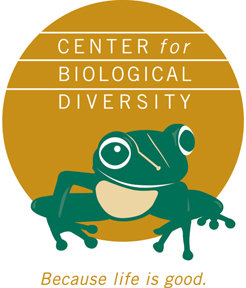
California Condor
Photo credit: Jon Myatt/USFWS
February 3, 2021 - LOS ANGELES— Conservation and tribal groups on Tuesday appealed a recent court ruling that the California condor doesn’t qualify as a traditional Native American cultural  property under federal law.
property under federal law.
The federal court concluded in December that the U.S. Fish and Wildlife Service did not violate the National Historic Preservation Act when it approved an 8,817-acre luxury resort and golf course on critical habitat for the California condor.
“The condor is a critical part of the Chumash peoples’ religious and spiritual practices. Destruction of its remaining habitat will harm our connection with our ancestors,” said Mati Waiya, a Chumash ceremonial elder and executive director of the Wishtoyo Foundation. “The Service’s decision to ignore our concerns and approve this outdated development is heartbreaking and illegal.”
The Act requires federal decision-makers to thoroughly evaluate proposed actions’ impacts on traditional cultural properties. The Service claimed the Act doesn’t apply to wild animals like the condor, despite the bird’s known significance to tribal groups.
“The link between our people and condors has been broken by decades of no access to our land and the condor’s land on Tejon Ranch, and by the threat of extinction,” said Delia (“Dee”) Dominguez, chairperson of the Tinoqui-Chalola Council of Kitanemuk and Yowlumne Tejon Indians. “The destruction of the condor is a continued destruction and maligning of the people. We must restore the link between people, ceremonial places and condors, but the government’s failure to consider the condor’s religious and cultural significance makes this very difficult.”
The Service issued the permit to harm condors in 2013 after the Wall Street-backed developer Tejon Ranchcorp sued in 1997 to halt condor recovery efforts near Tejon Ranch. After applying legal pressure Tejon received federal authorization to harm condors for a resort development — the first permit of its kind to harm the critically endangered bird. Tejon Ranch includes the condor’s only significant foraging habitat close to nesting habitat in the Sespe-Piru Condor area.
Today’s filing comes in the wake of Tejon’s alleged refusal to make legally required payments to the Tejon Ranch Conservancy under the historic 2008 “Ranchwide Agreement.” Tejon was subject to fines for the illegal killing of at least 11 mountain lions to accommodate trophy game hunters. The company also blacklisted botanical groups from accessing the ranch.
“The Service bent over backward to let a Wall Street-backed developer forever scar thousands of acres of condor habitat while ignoring the concerns of Native Americans,” said J.P. Rose, an attorney with the Center. “We urge the Biden administration to reverse this decision, which is rooted in white supremacy, and demand that agencies meaningfully coordinate with tribal representatives.”
The Center for Biological Diversity is a national, nonprofit conservation organization with more than 1.7 million members and online activists dedicated to the protection of endangered species and wild places.
Source: Center for Biological Diversity








